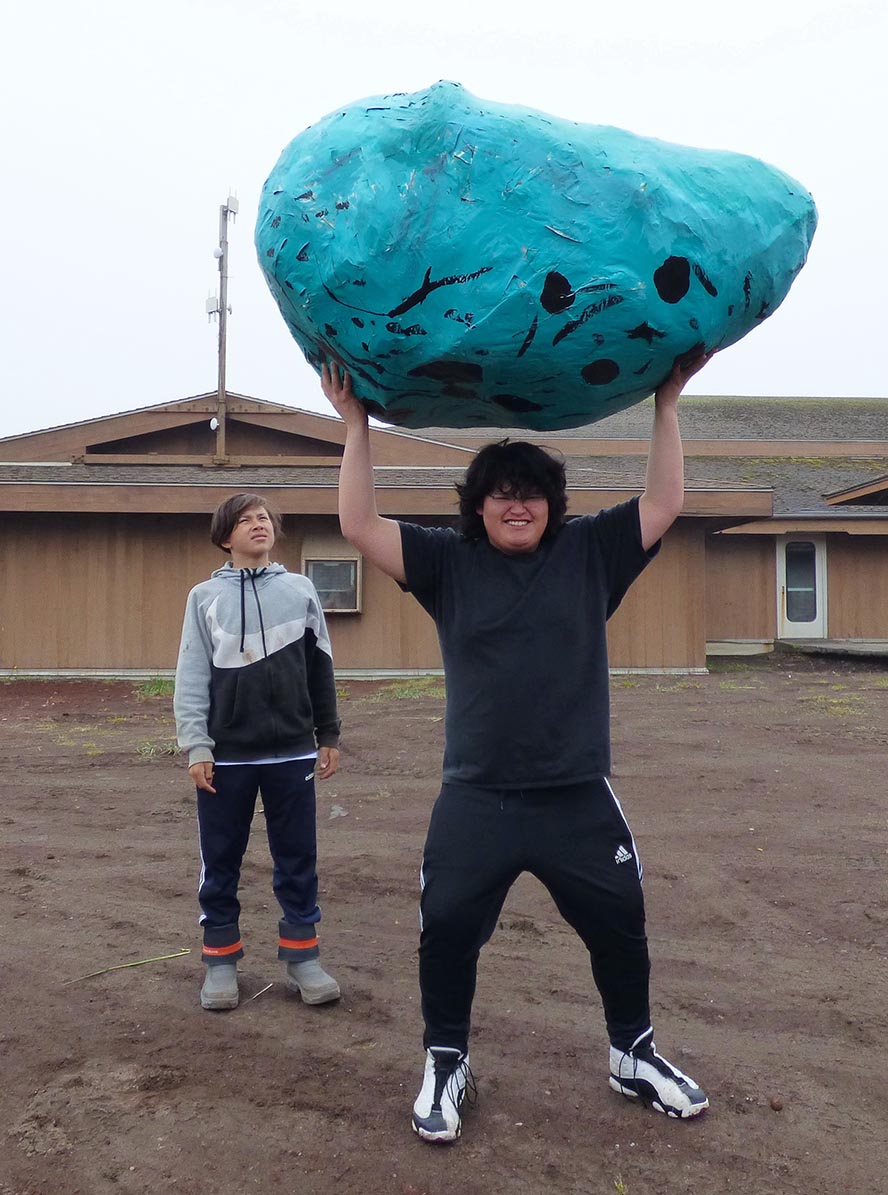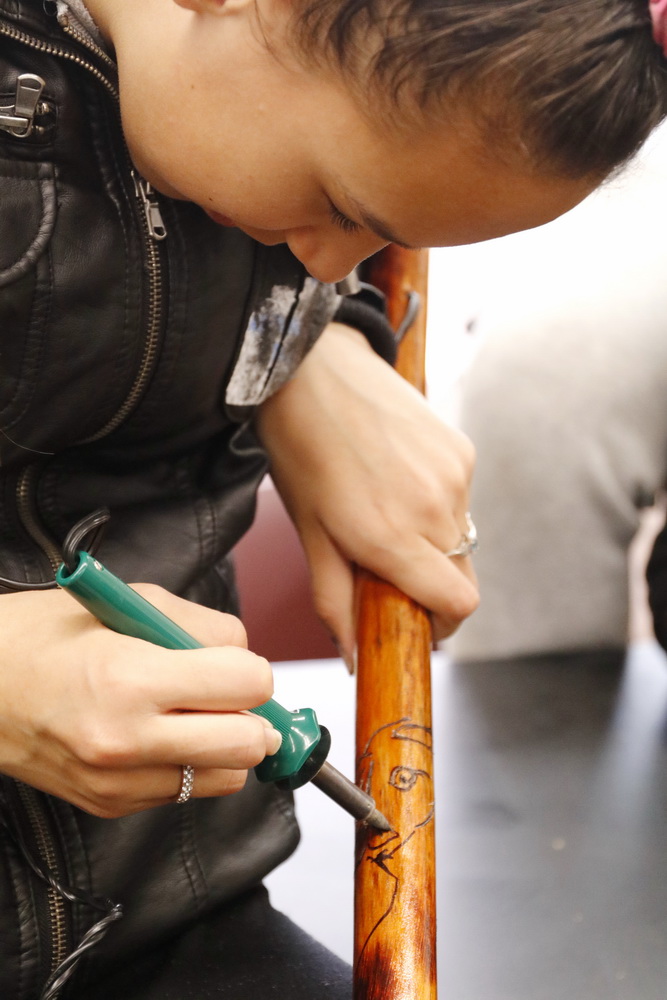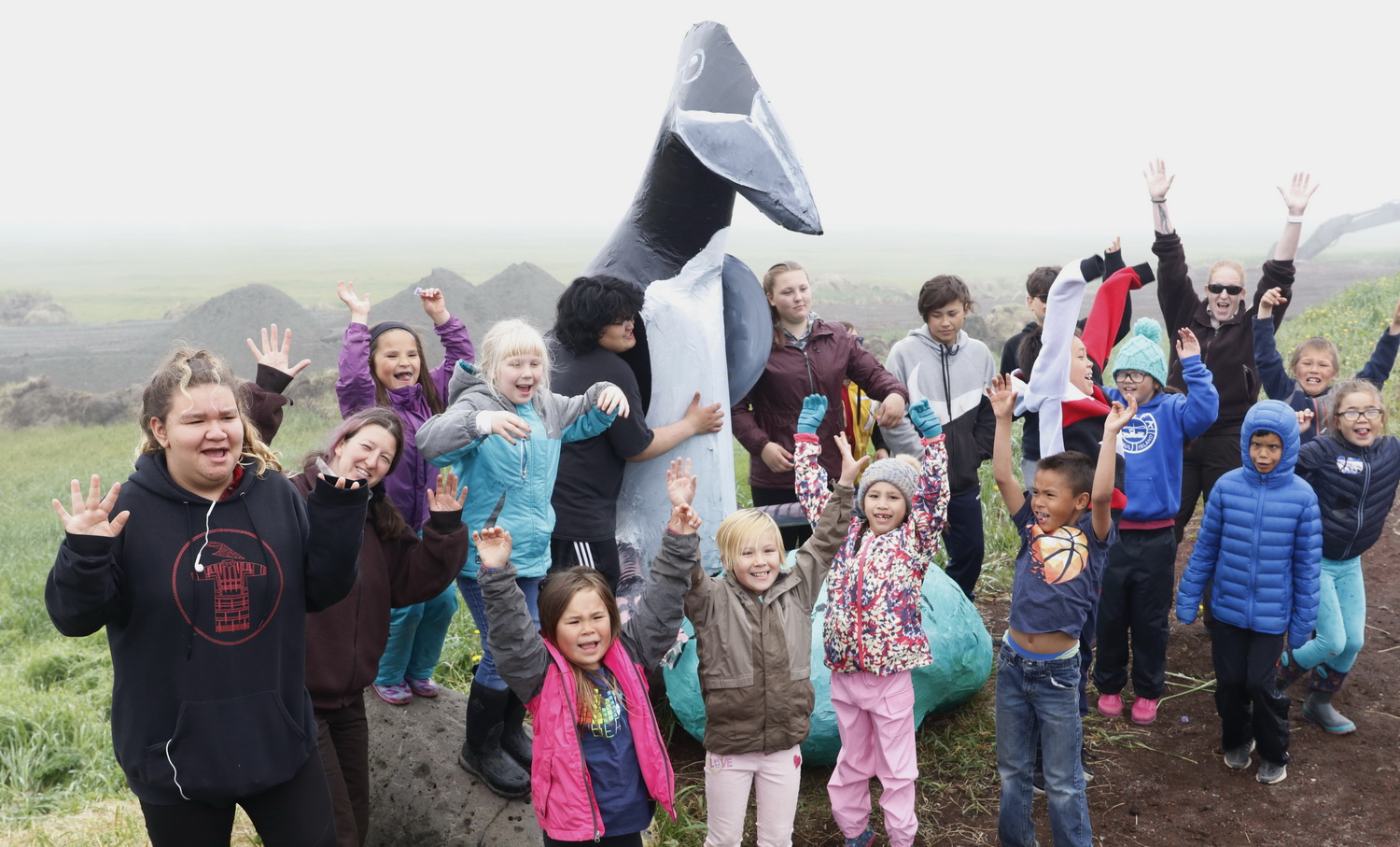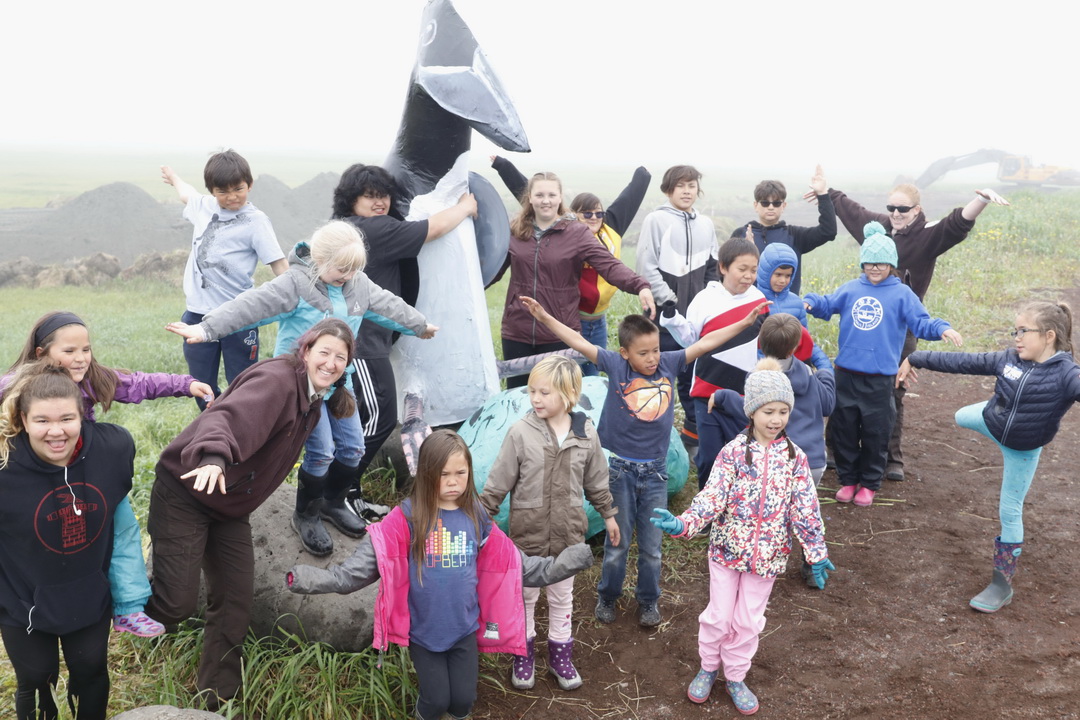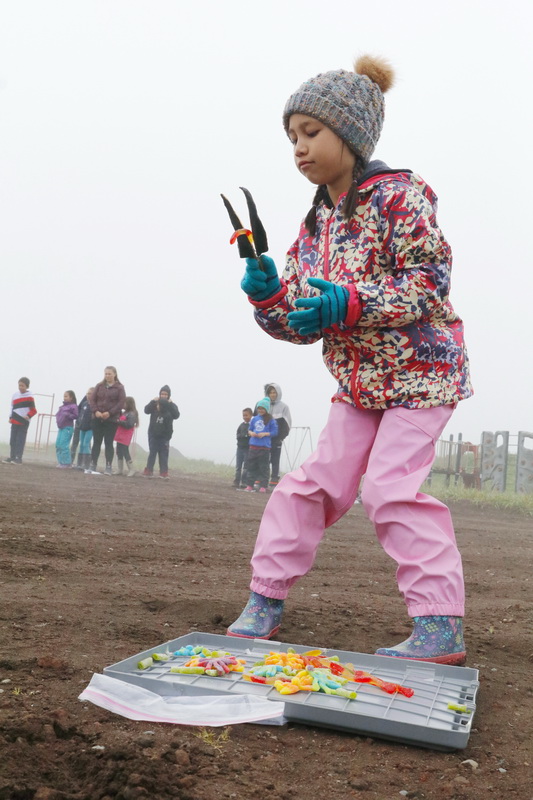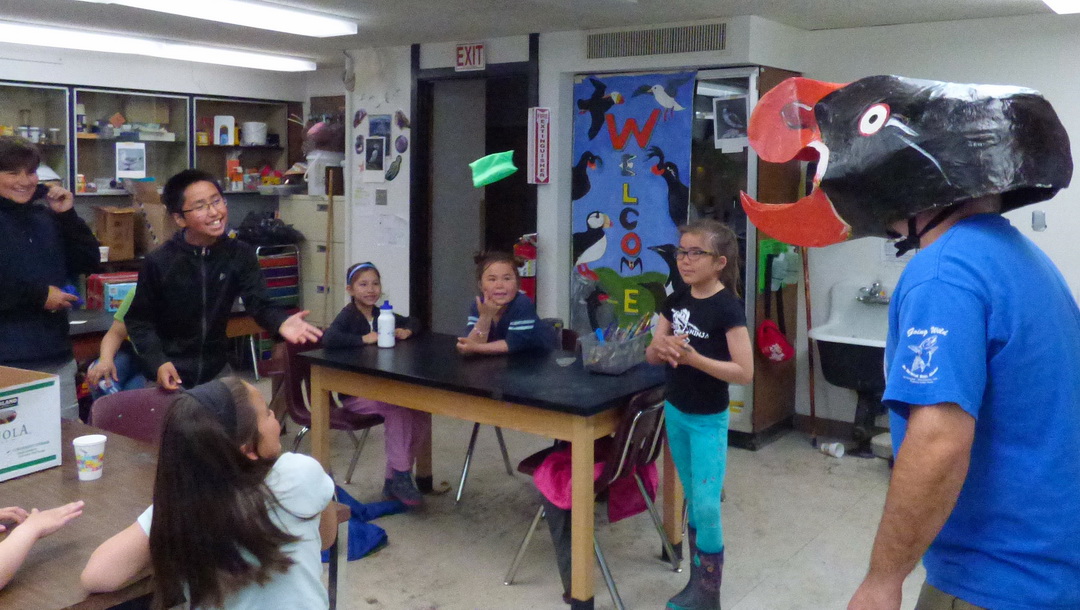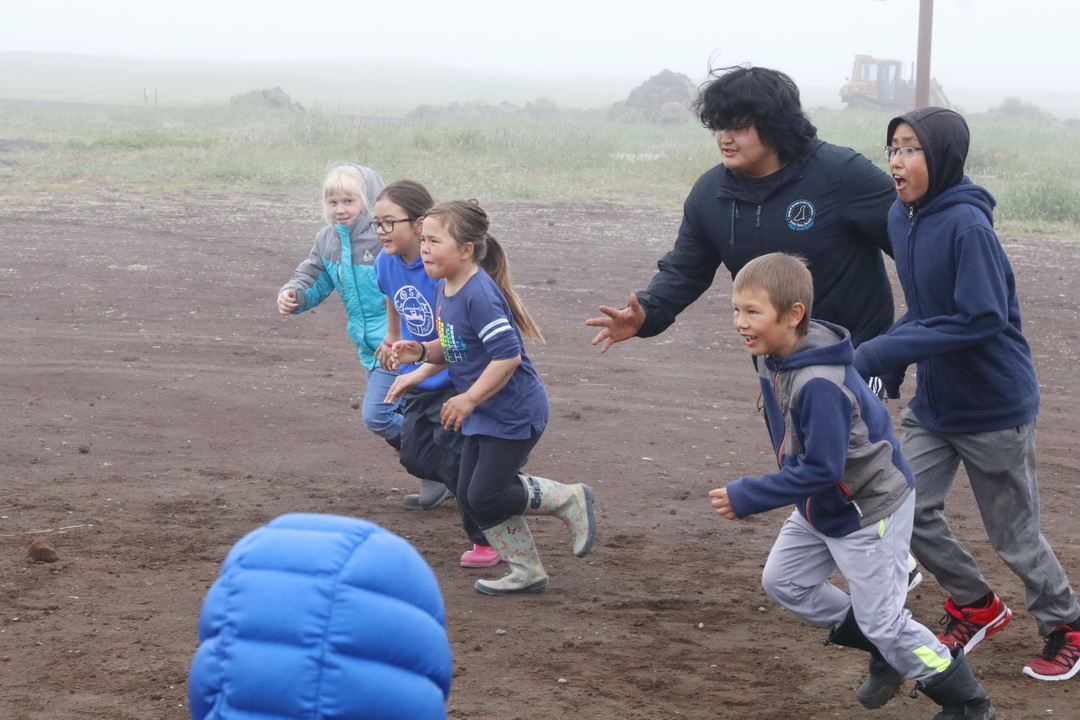Learning Games and Play Prep
To start camp today, we all practiced our counting skills, with and without clickers, on official USFWS bird survey videos. In the end we concluded we probably would not get hired by the Fish and Wildlife Serviced unless we improved our counting and estimating skills.
Next, we headed outside for an epic battle of Murres vs Puffins to get the most high-quality food for their chicks. For growing seabirds, fat calories=quality. Murres have beaks that let them carry home one high-quality, fatty fish. Puffins have bills that let them get up to 3 smaller fish per bill load. Last I checked, the puffins were taking the lead in the survival of the fittest.
We have learned all through camp about the challenges facing seabirds for survival. “The Conservation Game” had seabirds making their way through many obstacles to find food and get back home. In addition to the rats, foxes and fishing lines explored earlier in the week, we learned about the dangers of plastic and marine debris in the seabird environment.
“Kittiwakes and Climate Change” taught us the advantages of being a generalist when conditions change. We got to fly around outside and be Black-and Red-legged Kittiwakes. The generalist Black-legged Kittiwakes had a distinct advantage over the specialist Red-legged Kittiwakes and will be better equipped to withstand a changing world.
Our theater set this year is way more elaborate than in past years. We all spent some time painting rocky cliffs on panels that we will hang on stage to transform it into a rocky seabird colony. Painting mosses and lichens to the rocky cliffs was a nice touch.
We ran our rehearsals in the library today and made some progress toward an organized presentation. We will have some work to do Monday before the Open House to get ready for the community to watch us perform.
We had a demonstration of the difference bone density can make to a bird. Divers vs. Fliers showed us how dense bones make it harder to fly but easier to dive. The puffin bones sunk and the shearwater bones floated in the demo. We also watched a video of how hard it is for the dense-boned puffins to take off then they are on land.
We had a second-round of “Feed the Seabird,” a game we played earlier in the week. This time the boys won! There was no time for another rematch.
Guest speaker Veronica visited our class with a report on the recent findings from the Tribal Eco office. Many Least Auklets and Short-tailed Shearwaters have been washing ashore dead in recent days. It is believed that they are starving. We will look for beached birds on our camping trip this weekend.
What a busy day at Seabird Camp! We will have our open house and performance at 7 pm Monday. Kids arrive at 6:15 to rehearse our plays.
In the evening we introduced “Seabird Adventure Survival Camp” to kids 6th grade and up. We gave 14 kids the information about camp and described our expectations. We went over the packing list, and gave each camper a walking stick that they will decorate throughout the weekend. The kids were all very into decorating their staffs and spent hours adding designs with wood-burning tools and paint pens.
